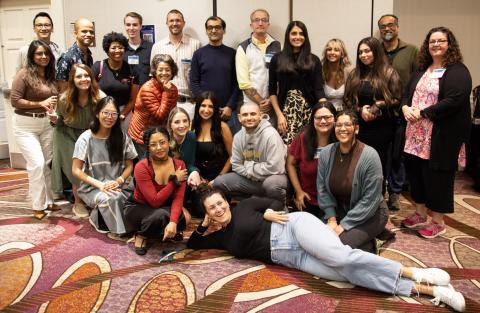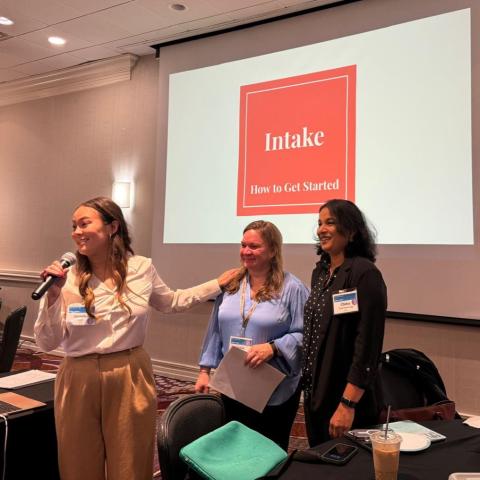
Counseling Residency Explores Foundational Skills and Integrates New Doctoral Students

From October 14-18, 2024, Palo Alto University's Counseling Department welcomed 100 students to its fall Residency I program at the Sonesta San Jose-Milpitas. The week-long intensive training allowed our master’s students to gather in community and learn about some of the foundational clinical skills of Counseling including comprehensive explorations of intake and broaching. This program also marked a significant milestone as it integrated doctoral students from PAU's new Counselor Education and Supervision (CES) program, enhancing the learning experience for master's level counseling students.
Residency I provided students with hands-on training through structured activities, cohort group practices, and skill-building sessions. Dr. Rachel Jacoby, Counseling Residency Coordinator, emphasized the program's comprehensive approach: "The goal of this residency program is to provide our students with an immersive experience that builds both clinical skills and professional confidence. Through structured supervision and direct feedback from faculty and peers, we aim to prepare our students for the complexities of counseling practice. This program is not just about skill-building; it is about fostering ethical awareness, cultural competence, and the adaptability needed to serve diverse client populations effectively."
Jennifer Kiehl, a CES doctoral student, shared her perspective on the experience: "Residency I is one of my favorite experiences because it brings all of our new students together for the first time. It creates a space where students and faculty are connecting deeply, while fostering growth through collaboration. It was incredibly rewarding to watch students develop more confidence in their skills over such a short time."
Kiehl noted the transformative nature of the learning experience: "It's wonderful to see our master’s students have 'aha' moments where the concepts we've been learning about click into place. Just as valuable, though, is witnessing students move through the vulnerability of learning a new skill and the self-doubt that can accompany that process, gaining new insights into their needs and areas of growth."
Throughout the week, students engaged in various community-building activities, including shared meals with PAU leadership and faculty-led group sessions. These interactions created opportunities for meaningful connections among students, faculty, and doctoral students.

"Supervising and teaching during residency gave me the chance to experience reciprocal learning firsthand," Kiehl reflected. "While I guided students, their fresh perspectives challenged me to reflect on and deepen my own practices as a clinician and educator. This sense of unity and connection among students and faculty is one of the residency's greatest strengths, creating bonds that extend well beyond residency week.
The successful integration of doctoral students into the residency program marks an important evolution in PAU's counseling education approach, creating a multi-tiered learning environment that benefits both master's and doctoral students. Our master’s level students not only receive the support of our skilled and expert faculty but they receive additional support from these doctoral level students who bring their own experiences to residency.
To see some of the magic of our Residency program, check out this photo album on our Facebook page.
